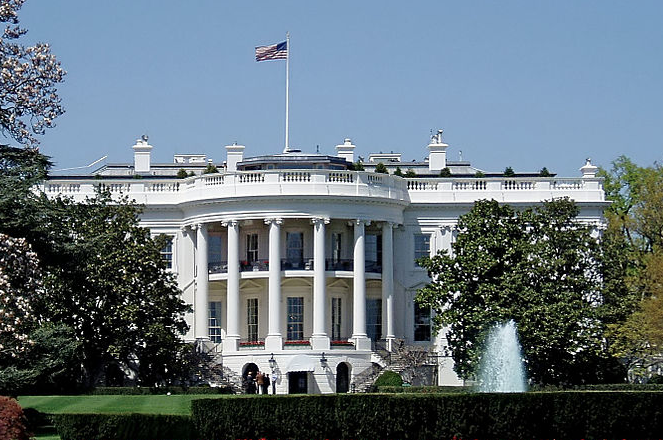When Washington Doesn’t Get Its Way – OpEd
By Arab News
By Fawaz Turki
The White House, which sees itself as the Supreme Court that adjudicates cases involving global disputes, has just handed down a decision: To speak to Iran is unseemly, to legitimize it is unpardonable, and to befriend it is criminal. So unless you want to be cuffed and carted off to a holding cell, reconsider where you stand on the Conference of the Non-Aligned Movement to be held in Tehran next Wednesday.
Yet Ban Ki-moon, the UN Secretary General, is undeterred. So is President Muhammad Mursi of Egypt. So are 31 heads of state and 10 foreign ministers. And so are, all in all, 120 countries representing two thirds of the 193-member General Assembly — the largest single voting block in the international body — which have evinced little fear of retribution for not knuckling under to US pressure. The summit will go on as scheduled.

Let’s backtrack a bit.
To those of us who were around in the early 1960s, when adolescent political activism was fashionable, the names of Nasser and Sukarno, Tito, Nehru and Nkrumah, evoked an era of moral optimism. To us in the Arab world, and much of the Third World, it was a time to search for national self-definitions, for a place in a regrouped global dialogue of cultures, after decades of stultifying colonial rule. To the West, the era was known as the Cold War, a superpower conflict that threatened to hound humanity to oblivion.
Since we did not want to take sides or be part of that messy rivalry between the Euro-American world and the Soviet Union, in which the little guys would have been used as pawns, we bandied together in 1961 as a group called the Non-Aligned Movement. We simply demanded that our collective voice be heard — and heeded. After all, we represented roughly 60 percent of the population of the planet. In short, we posited the notion that it was no longer plausible, in a post-colonial world, for former colonial powers to draft us, under duress, in a neo-colonial war of little concern to us. No longer “subjugated peoples,” we would now as independent nations be the only determining force in our destiny.
Contrary to the arcane argument that Washington is now advancing, the meeting in Tehran of delegations from 120 non-aligned countries is not intended as a wily ruse by Iranian leaders to raise the profile of their nation on the global stage, or to discredit the American-Israeli narrative that Iran is a “pariah state.” It is simply that the rotating system of the non-aligned group, whereby a member state is granted the presidency every three years, and in whose capital the group’s summit is held, falls to Tehran in 2012. We have been helpless, sadly, at thwarting efforts by the US to subvert Palestinian rights in the Arab-Israeli conflict, but meddling in the affairs of a body of nations representing well over half the population of the world is over-reach. It crosses a line that we consider unacceptable for its hubris.
Explaining the blowback to the US resulting from its efforts to isolate Iran in this case, Fareedeh Farhi, an independent Iranian scholar at the University of Hawaii, told the New York Times last Thursday: “A case is being made that it is not the ‘global community’ that has problems with the Islamic Republic, as repeatedly asserted by US officials, but merely a US-led-and-pressured coalition of countries. And ironically the Obama administration is conceding the point by trying to pressure various leaders from attending the meeting.” Why should we kowtow to the US? For, look, we have problems with the Iranian regime, true, most notably its disgraceful stance on the Syria crisis — but not with the Iranian people themselves, with whom we are neighbors and with whom we have shared a glorious history that stretched over centuries. During those many centuries, we created, together, a durable literary, artistic and scietific heritage whose effusions remain with us to this day. We cannot — we should not — allow disputes between us, whether they are theological, terrorial or ideological, especially where these are anchored in temporal misunderstanings, to cloud our broader vision.
Meanwhile, when the non-aligned nations meet next Wednesday in Tehran, a lot of potential good will come out of it beyond mere expressions of solidarity by peoples from the global south. India and Pakistan, for example, have agreed to meet on the sidelines to discuss bilateral issues. The crisis in Syria will be on the agenda, and member states may push for a resolution that builds on efforts by the UN and the Organization of Islamic Conference (OIC). An entente cordiale between Egypt an Iran may be reached, thus enhancing regional stability. (Eat your hearts out, Tel Aviv and Washington.) And a host of other issues, including the question of Palestine, will be raised.
The significance of the non-aligned summit in Tehran is attested to by the presence of high-profile attendees, including that of the UN secretay general, who was urged by the US to boycott it, but opted to exercise independent judgment.
Victoria Nuland, the State Department spokeswoman, railed earlier this week: “We frankly don’t think that Iran is deserving of these high level presences.” Oh, ya? A fat lotta good the “presences” of your government have had on countless “peace conferences” aimed at resolving conflicts in our part of the world.
